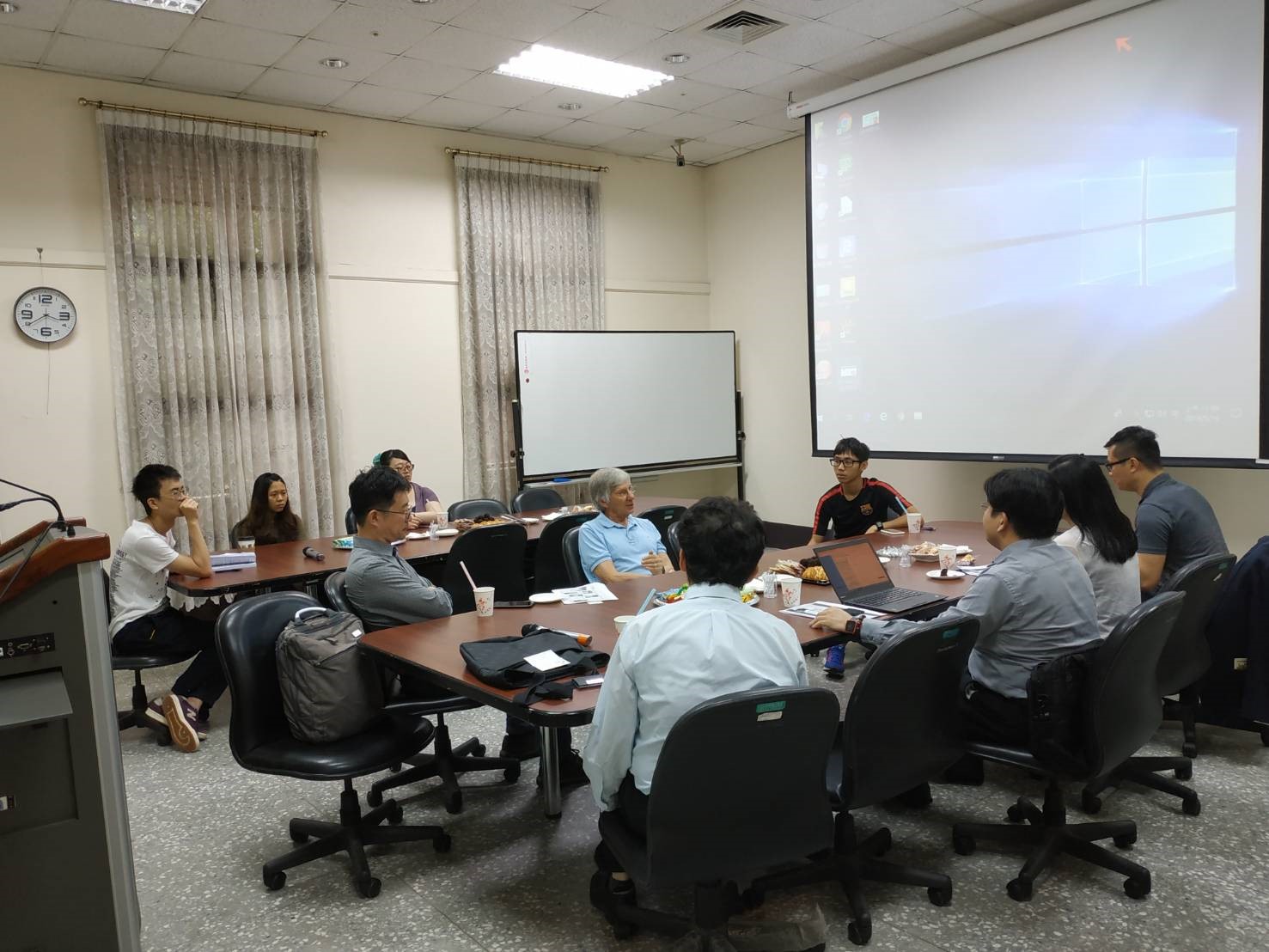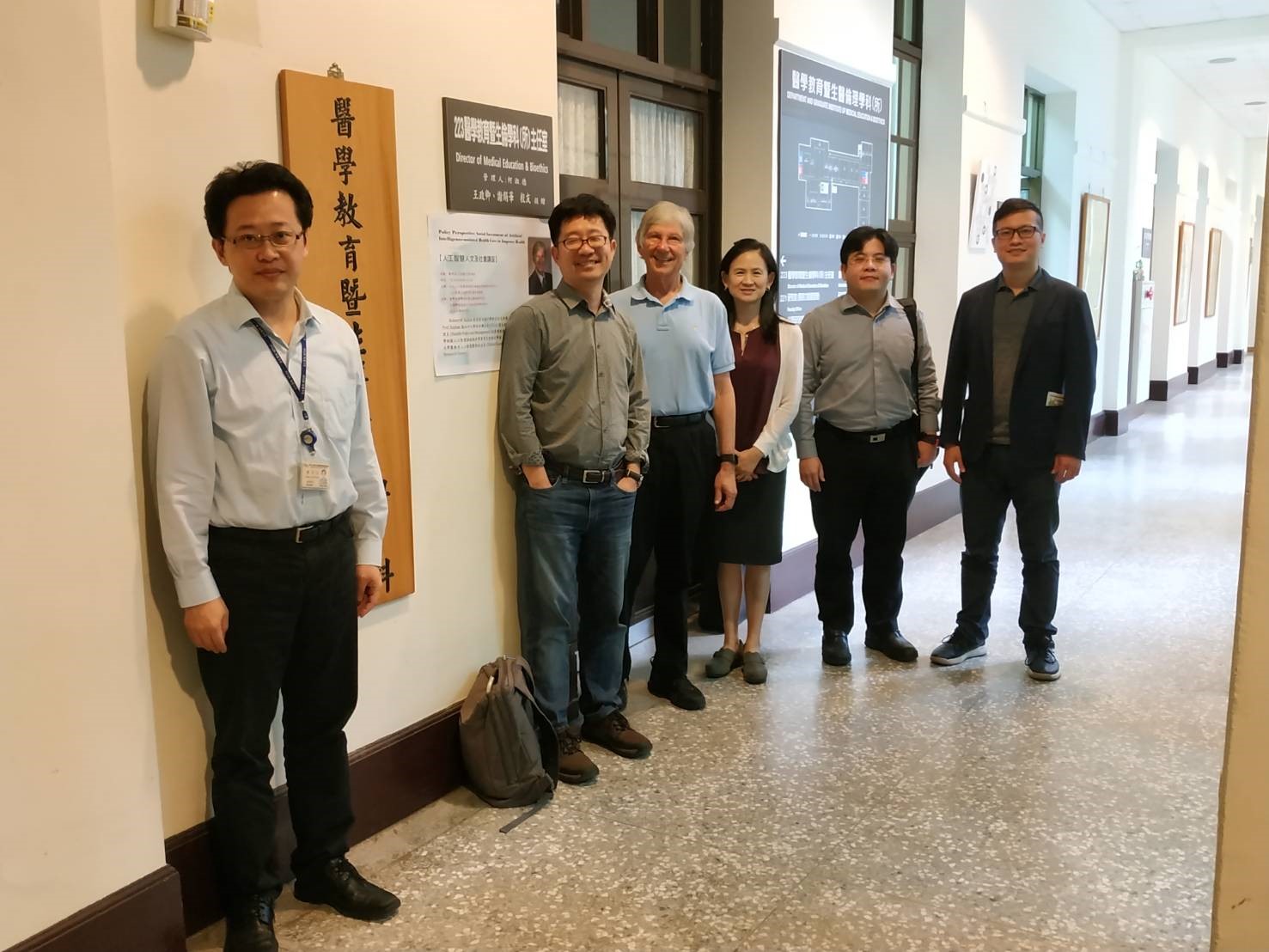
The lecture about artificial intelligence on humanities and society was held by Prof. Yen-Yuan Chen and Prof. Duan-Rung Chen, who are the principal investigator of “The Study of Ethical, Legal and Societal Issues of Artificial Intelligence in Medicine”, an integrated project of ministry of science and technology project number: 108-2634-F-002-023-. They invited the Emeritus Professor of Health Policy and Management in University of California, Los Angeles (UCLA), Robert M. Kaplan, to do the academic exchange and give a lecture. Prof. Robert M. Kaplan has ever served as the director of Agency for Healthcare Research and Quality (AHRQ), Department of Health Services (Now HPM), Department of Family and Preventive Medicine of American Psychological Association, and the behavioral and social sciences programs of National Institutes of Health.

Photo 1. The discussion with Prof. Kaplan.
The Clinical Excellence Research Center (CERC) of Leland Stanford Junior University (SU), which Prof. Kaplan joined in, is an important research center of artificial intelligence (AI). For example, they have ever developed the AI system which could predict death. According to the e-health profile data of nearly 2 million adults and children, AI system could be trained by adding the explanation of diagnosis, the inpatient days, the kinds of treatment, medical therapy recorded in the period from diseases onset until the death in 12 months. Then the computer could do self-learning to predict the probability of dying in 3~12 months (Avati, et al., 2017). During this lecture, Prof. Kaplan also shared their current interesting research, which is the development of the AI system by applying the algorithm of Behavioral AI to ensure physician to wash/brush their hands. Through the behavioral information including the posture, time, and the amount of water of washing/brushing hands, the machine could learn the necessary conditions of correctly washing/brushing hands and monitor the behavior of physicians. The door of the operation room will not open if the physicians do no achieve the standard of washing/brushing hands. The research of CERC pointed out that AI could learn how to identify the emotions, including anger, dislike, fear, happiness, sadness, and surprise, which could help human recognize the strength and direction of the emotions through voice, facial expression and body movement under the environment with uncertainty. These might be applied in the medical setting. However, Prof. Kaplan reminded us of the resource- and time-costly of researching Behavioral AI. The future benefits would be high or not, should also be considered by public health scholars.
Through the technology of behavioral AI to calculate the behavioral signal, facial expression, and body movement, there would be a development potential and opportunity of the research covering the topics of health behavior, physician behavior, and the doctor-patient interaction. The current lecture promoted the mutual understanding of our teachers and students and Prof. Kaplan with CERC of SU and create the opportunity of exchanging and learning in the future.

Photo 2. The group photo with Prof. Kaplan after the lecture.
